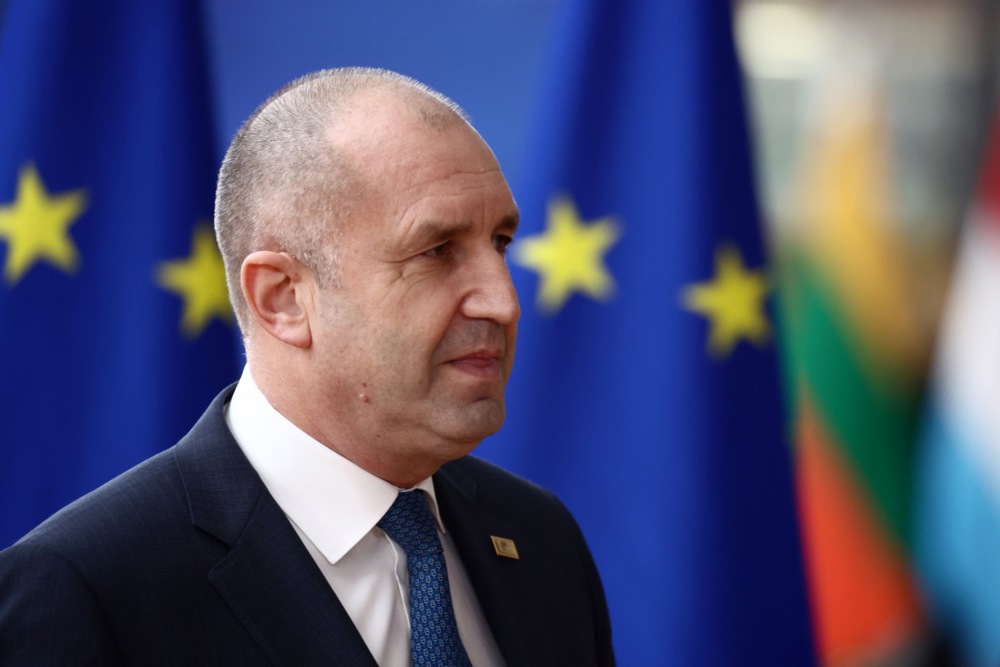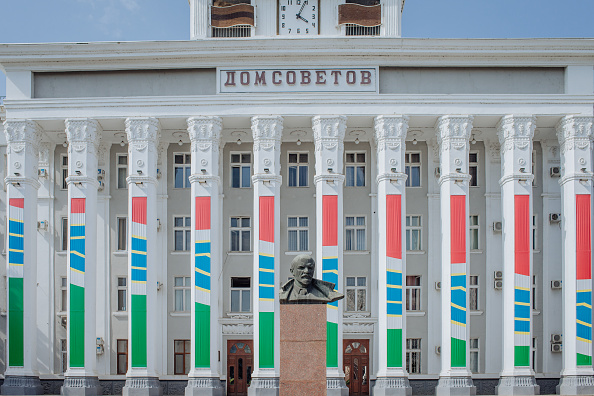Bulgaria is ploughing ahead with a gas deal that will create a European “backdoor for Russian gas”, despite European Union objections.
The agreement signed between Turkish and Bulgarian gas giants puts Bulgaria on a collision course with the European Commission.
The terms effectively mean that Russian gas, rebranded as Turkish, could flow into EU networks at a time when the bloc is keen to ensure that no European money will fund the Kremlin’s war machine.
Compounding the conflict, the deal is the latest and, perhaps, most dramatic episode in a long-running dispute between the EC and Bulgaria’s state-owned Bulgargaz. That allegedly involves issues of reckless policy, unquestioning government support and a consistent effort to crush private competition.
Speaking to Brussels Signal, Chairman of the Bulgarian Natural Gas Association, Svetoslav Ivanov, said: “The controversies that have arisen over the … agreement between Bulgaria and Turkey are no surprise to anybody who follows Bulgarian energy policy.
“[This deal] is a natural development for the state’s policy to protect the state monopoly.”
The Turkish Connection.
The terms of agreement are raising suspicions.
For one, in the deal between Bulgargaz and Turkey’s state-owned Botaş it seems Bulgargaz has received the short end of the stick. Examples include the fact that Bulgargaz is to pay exponentially more for the 13-year duration of the contract than Botaş.
Additionally, if the contract is terminated early then Botaş will be entitled to all the fees it is due, whereas there is is no such guarantee for the Bulgarian company.
Former Bulgarian diplomat Ilian Vassilev wrote that the penalty system was intentionally designed to dissuade any changed leadership in either the Bulgarian Government or in Bulgargaz from reneging on the deal, as it would effectively bankrupt the national gas giant.
The most worrying issue for many is the fact that the state-owned Bulgarian company is required to transport gas from Turkey without disclosing its country of origin.
Since Turkey sources gas and other fuel from a variety of different states including Kuwait and Azerbaijan, it will ultimately be difficult, or near-impossible, for either the EU or the Bulgarian Government to ensure that it is not of Russian origin.
As one communique seen by Brussels Signal reads, “gas molecules have no label of origin”.
While the EU has not yet banned Russian gas, it has set a target date of 2027 for Europe to eliminate its dependence on it and to cut off importation entirely.
Bulgaria’s state-owned monopoly will be effectively locked into a contract until 2036, which Vassilev said would see imported Russian gas repackaged as “Turkish gas”.
On September 3, Russian President Vladimir Putin expressed his hopes of “establishing a gas hub in Turkey in the near future” during a recent meeting with Turkish President Recep Erdoğan in the Russian city of Sochi.
‘Bad Faith’ and Bulgarian gas.
The EC is investigating the deal. At question is whether the Turkish-Bulgarian agreement is in violation of EU competition law. Among issues is the fact that the rights to transport gas have to be open to a competitive tender process when it is traversing internal borders, although this does not apply to deals made between EU and non-EU countries.
That has not prevented the European Federation of Energy Traders (EFET) from publishing an open letter saying that many aspects of the deal, such as what the EFET said was its secretive nature, alongside the special infrastructure access given to the two state monopolies are still violations of the EU’s competition law.
Ivanov agreed, saying the deal gives “monopolistic advantages … for state-owned corporations”.
The EC has a long history of fighting with Bulgargaz. As with many Eastern EU countries, Bulgaria was obliged to break up and privatise many of its state-owned companies that had existed under Communism. This has not happened with Bulgargaz, heir to the Soviet-era Oil and Gas company.
To date, Ivanov claims that Bulgargaz has exercised “absolute opposition to privatisation and competition”. It currently enjoys 90 per cent of the gas market share.
“Historically, the Bulgarian energy market has been dominated by state-owned companies. This remains so today,” he said.
A source familiar with the case told Brussels Signal that, at least in the energy sector, the mentality has not changed since the fall of the Warsaw Pact in 1991.
The failure to reform the industry was brought to a head in 2018, when the Directorate-General for Competition, under Margrethe Vestager, fined BEH (Bulgaria’s umbrella company for Bulgargaz and the gas transporter Bulgartransgaz) more than €77 million.
According to an inside source, the original fine would have amounted to €300 million but was reduced on promises from the Bulgarian Government that it would address the situation.
Such alleged pledges had already been preceded by a Bulgarian Parliament declaration in which it reportedly said it would not recognise any EC decision in the matter.
Then-Prime Minister Boyko Borisov called any attempt at privatisation “a betrayal”.
The fine has not yet been paid and instead BEH waited until the last day to appeal the case, which is ongoing.
Attempts at implementing reforms were short lived, such as the Bulgarian Government initiative the Gas Release Programme, which was ultimately scrapped in 2022.
One of the latest examples included Bulgaria’s approach to the winter gas crisis of last year.
Following the Russian invasion of Ukraine, the EU mandated that Member States and gas companies would co-operate to fill their gas storage capabilities to 90 per cent before the winter of 2022-2023. This led to gas companies having to buy high and then sell low, as the mild winter meant they were left with more gas than they had anticipated.
Against this, the EU mandated that all Member States would then produce compensatory mechanisms that would keep the gas companies afloat. Bulgaria was one of the last to present its compensation plan before the European Council of Ministers, opting instead to demand that the EU pay its compensation costs.
The final plan it did produce was one that gave low-interest loans but only to Bulgargaz, leaving private competitors out in the cold.
Sofia vs Brussels?
Brussels Signal sources and Ivanov said they felt that Bulgaria’s long-running “bad faith” behaviour and now its controversial gas pipeline deal have set the nation on a “collision course” with the EU.
“The concerns that the secretive pipeline deal has triggered will provide the catalyst for firm action,” Ivanov warned.
On many counts the EU is now obliged to act over the Bulgarian Government and Bulgargaz. For one, it needs to enforce its own policy of promoting a privatised energy sector.
For another, Bulgaria is also regarded as one of the most polluting and least energy efficient countries in the EU. It uses four times more energy than the EU average, which could further provoke the bloc, which wants to enforce new Green Deal targets.
Geopolitics have also now entered the equation. While there is virtually nothing the EU can do to stop Bulgaria from making a gas deal with Turkey and it is even more difficult to prove that Turkish gas may be Russian in origin, there is little doubt Brussels will be extremely keen to ensure that EU money does not end up funding the Kremlin’s war machine.
While the EC’s ongoing case focuses on competition rules, one source with insider knowledge of the institution told Brussels Signal that the investigation was really “a case of catching Al Capone on his taxes”.





